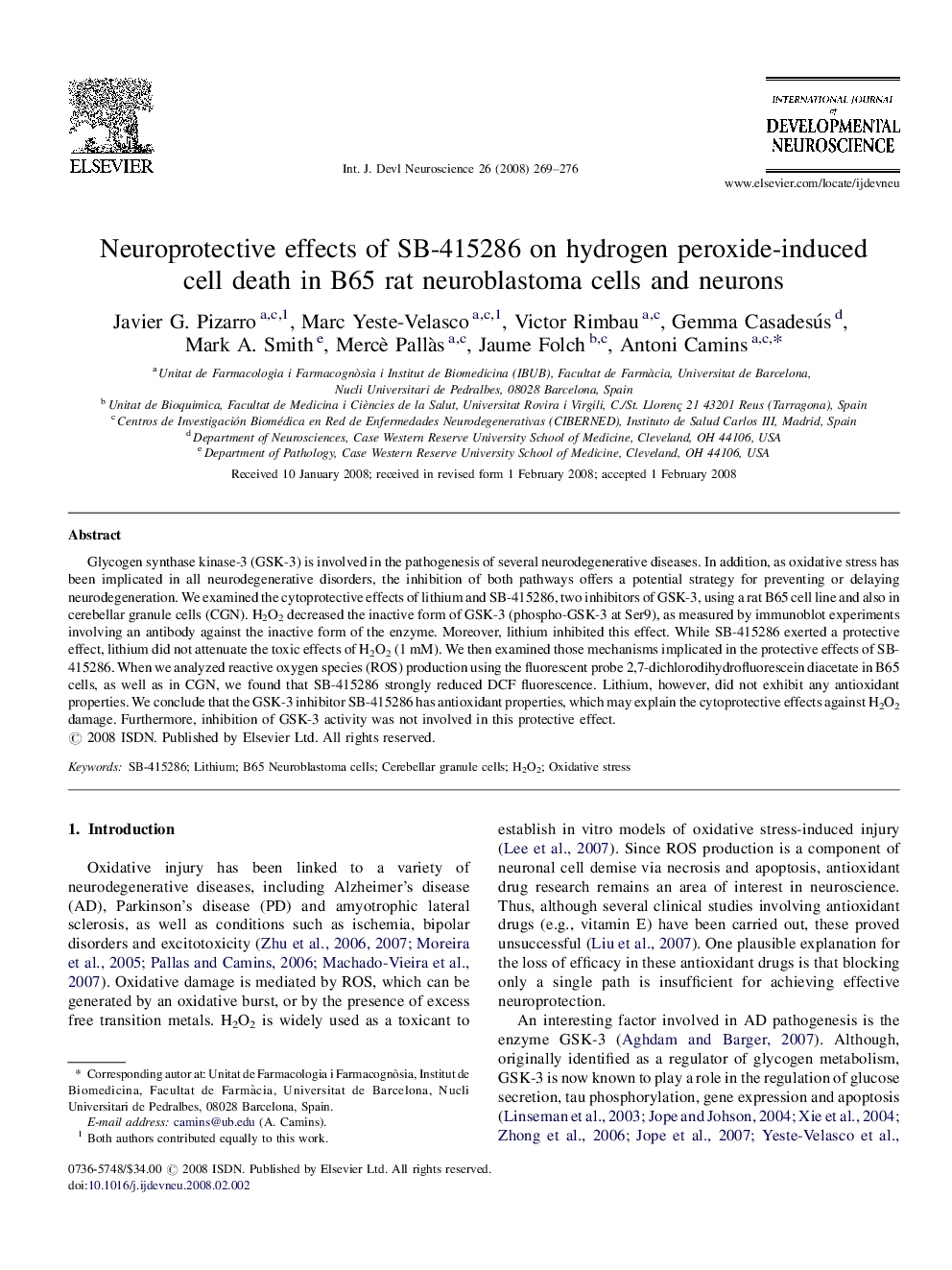| Article ID | Journal | Published Year | Pages | File Type |
|---|---|---|---|---|
| 2787040 | International Journal of Developmental Neuroscience | 2008 | 8 Pages |
Glycogen synthase kinase-3 (GSK-3) is involved in the pathogenesis of several neurodegenerative diseases. In addition, as oxidative stress has been implicated in all neurodegenerative disorders, the inhibition of both pathways offers a potential strategy for preventing or delaying neurodegeneration. We examined the cytoprotective effects of lithium and SB-415286, two inhibitors of GSK-3, using a rat B65 cell line and also in cerebellar granule cells (CGN). H2O2 decreased the inactive form of GSK-3 (phospho-GSK-3 at Ser9), as measured by immunoblot experiments involving an antibody against the inactive form of the enzyme. Moreover, lithium inhibited this effect. While SB-415286 exerted a protective effect, lithium did not attenuate the toxic effects of H2O2 (1 mM). We then examined those mechanisms implicated in the protective effects of SB-415286. When we analyzed reactive oxygen species (ROS) production using the fluorescent probe 2,7-dichlorodihydrofluorescein diacetate in B65 cells, as well as in CGN, we found that SB-415286 strongly reduced DCF fluorescence. Lithium, however, did not exhibit any antioxidant properties. We conclude that the GSK-3 inhibitor SB-415286 has antioxidant properties, which may explain the cytoprotective effects against H2O2 damage. Furthermore, inhibition of GSK-3 activity was not involved in this protective effect.
